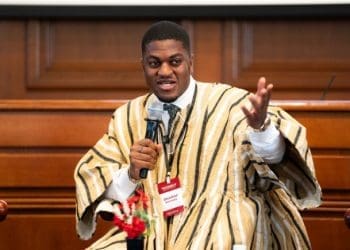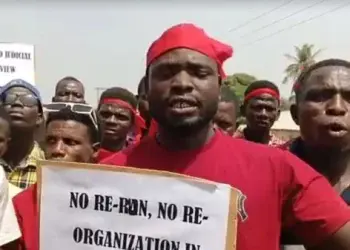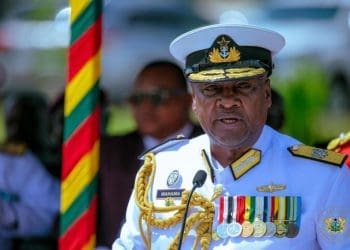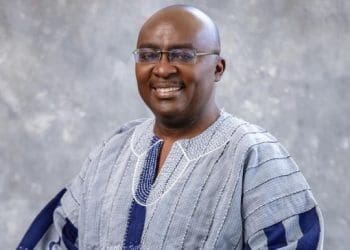Ghana is in mourning following the passing of legendary highlife musician Charles Kwadwo Fosu, popularly known as Daddy Lumba, who died on Saturday, July 26, 2025, at the age of 60.
News of his death has triggered an emotional wave across the nation, as Ghanaians from all walks of life pour out tributes in celebration of a man widely regarded as the greatest musician the country has ever produced.
From the highest offices of state to drinking spots, family homes, and trotro stations, Lumba’s voice fills the air.
His songs are playing on loop on the radio, television, and social media platforms, while tearful fans reminisce about how his music has shaped the cultural and emotional lives of generations.
President Mahama pays tribute
President John Dramani Mahama led the nation in mourning, describing Lumba as “a Ghanaian music legend” whose works “provided the soundtrack to our lives.”
“Lumba’s unmatched musical genius carried us through various phases of life. The beats may have died down, but his enduring legacy will echo through the ages,” the President said in a heartfelt statement.
“On behalf of the Government of Ghana, I extend heartfelt condolences to his family and loved ones for this irreplaceable loss.”

Nana Akufo-Addo’s tribute
Former President Nana Addo Dankwa Akufo-Addo expressed deep sorrow, calling Lumba “a pantheon among musical greats” and “a dear friend.”
“His hit-making songs will remain lasting contributions to my presidential journey and will forever be etched in the annals of the NPP’s political campaign,” he said.
“May he rest in the bosom of the Almighty until the Last Day of Resurrection.”
Dr. Bawumia pays tribute
Former Vice-President Dr. Mahamudu Bawumia also paid tribute, hailing Lumba as “a pillar in Ghana’s highlife genre” who nurtured and introduced many great talents.
“His brilliant compositions inspired and uplifted us. His passing is a huge blow, not just to music, but to the whole country,” Bawumia said.
Nation grieves loudly
Across the country, a spontaneous outpouring of grief and love has followed the news.
Fans have broken down in tears in homes, markets, and workplaces.
In Accra, Kumasi, Takoradi, and Tamale, people are blasting Lumba’s classics.
Eateries, salons, bars, and public transport vehicles have turned into rolling shrines of remembrance.
READ MORE: Ghana has lost a musical treasure — Mahama mourns Lumba
On the radio and TV, DJs are playing back-to-back hits. On social media, hashtags like #RestInPeaceLumba and #LumbaLivesOn are trending, with fans sharing emotional tributes and their favourite Lumba lyrics.
Family confirms passing
In a statement on Saturday, July 26, the family of Daddy Lumba confirmed his passing, requesting privacy during this difficult time. His radio station, DL FM, described the loss as “monumental” and “a dark day for Ghanaian music.”

“Daddy Lumba was more than a musician—he was a cultural icon whose music touched countless lives.
“His soulful voice chronicled the Ghanaian experience in all its joy, pain, love, and resilience,” the statement read.
The dual genius
Born on September 29, 1964, Lumba’s musical journey began with the release of “Yereye Aka Akwantuo Mu” in 1989.
Over the next 36 years, he released more than 33 albums and over 200 songs, moving seamlessly from gospel to highlife, from social commentary to sensual narratives.
His genius lay in his contradictions—one year releasing a gospel masterpiece like “Mesom Jesus”, the next year stirring controversy with provocative tracks like “Aben Wo Ha.”
He was spiritual and secular, moral and mischievous, making him both beloved and unpredictable.
Trophy-laden career
At the inaugural Ghana Music Awards in 2000, Lumba took home Artist of the Year, Album of the Year, and Most Popular Song of the Year—a historic sweep.
He repeated the feat in 2003 and again in 2015, demonstrating rare longevity.
In 2008, the Government of Ghana conferred on him a National Honours Award, officially recognising him as a national treasure. Beyond Ghana, he won Best Highlife Artiste at the Ghana Music Awards UK in 2017 and received the Lifetime Achievement Award the following year.
In 2018, the EMY Africa Awards named him Entertainment Legend. He was also nominated for Kora, MOBO, and MTV Africa Music Awards, confirming his global resonance.
His voice, our story
Lumba’s music often served as a mirror for Ghanaian society.
He sang of betrayal, heartbreak, celebration, spirituality, and mortality.
With poetic mastery, he addressed complex themes in simple, unforgettable language.
His collaborations with Nana Acheampong, Ofori Amponsah, Afua Ampofowaa, and Borax produced era-defining anthems.

Each album—from Obi Ate Meso Bo, Sika Asem, Poison, Agenda, to Awosoo—reflected Ghana’s evolving social landscape.
Final verdict: The GOAT?
For many fans, the debate is settled: Daddy Lumba is the Greatest of All Time (GOAT).
His consistency, musical depth, adaptability, longevity, and ability to speak to every Ghanaian generation set him apart.
He wasn’t just a musician—he was an emotional compass. He didn’t just create hits—he chronicled Ghana’s soul.
As Ghana prepares to lay him to rest, one thing is clear: Lumba’s music will never die.
His voice will live on in our hearts, homes, and headphones forever.
Below is a comprehensive look at his discography and the evolution of his sound—an archive of more than 200 songs across 33 albums.
Each project, whether a solo work or a collaborative effort, reveals something new about the man behind the music.












